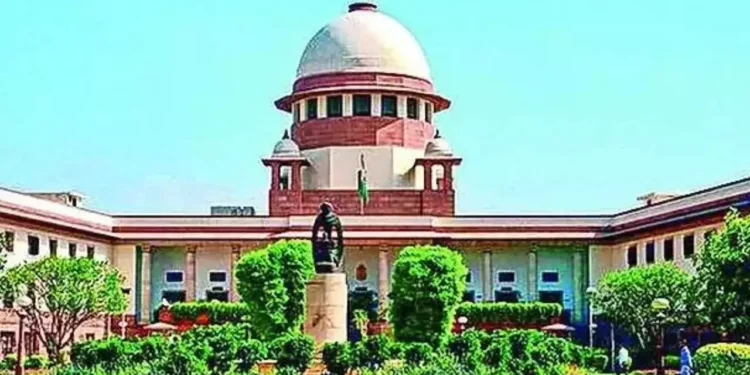Lagatar24 Desk
New Delhi: The Supreme Court has issued a stern directive to the Delhi Police, calling for “immediate action” to halt the sale and use of firecrackers in the city, where such practices contribute to severe air pollution and defy an existing ban. Observing that “no religion encourages pollution,” a bench led by Justice Abhay S Oka and Justice Augustine George Masih highlighted the impact on citizens’ fundamental right to health during a hearing on Delhi’s recurring air quality crisis.
The court emphasized that the harmful practice of bursting firecrackers, which intensifies air pollution and leads to hazardous levels of smog, must be addressed promptly. It called on the Delhi government to make a decision regarding a permanent ban on firecrackers, setting a deadline of November 25 for action.
The reprimand follows last week’s notice issued to the Delhi government and police, seeking an explanation for the failure to enforce the firecracker ban. Despite assurances from the Delhi Police, the court expressed dissatisfaction with their response and the measures taken so far.
“There are widespread news reports that the ban on firecrackers in Delhi NCR was not implemented at all,” the court noted. During Monday’s hearing, it asked, “After October 14, did the police go and stop the sale of firecrackers?” Although the police claimed they had acted, the court dismissed this as “eyewash.”
The Supreme Court was unimpressed by the late notification of the ban and observed that the enforcement appeared inadequate. “Implementation of the order was not taken seriously by the police, and there is nothing in the affidavit to show the ban order was communicated to manufacturers and stores,” the court said, directing the Commissioner of Police to take immediate action and ensure that all concerned parties are informed of the ban.
The Delhi government faced criticism for its delayed announcement of the firecracker ban, which potentially allowed residents to stockpile fireworks before it was enforced. “It is quite possible that by the time the ban was promulgated, people who burst firecrackers had already acquired stock,” the bench noted.
On the Monday following Diwali, which took place on November 31, Delhi’s air quality index (AQI) plummeted to ‘severe’ levels, exceeding the 400 mark in multiple areas, including Anand Vihar, Rohini, Ashok Vihar, and Vivek Vihar. The presence of PM2.5, hazardous fine particulate matter, posed significant health risks, with readings far above the acceptable annual standard of 40 micrograms per cubic metre.







